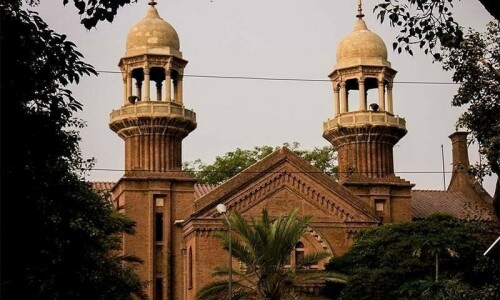PESHAWAR: For a party that has made a myriad of sacrifices and compromises in recent years for the sake of peace, the Awami National Party now finds itself facing with an ‘existential curse’ that wouldn’t end despite the offering of nearly 900 souls from its ranks and files.
The party has made compromises with different stakeholders, often deviating from its principled stand on various internal and external issues in an attempt to survive, but its misfortunes seem to be unending.
Also read: Peshawar blast proves that security for electioneering is not an undue luxury
Its workers and leaders have been under attack and the party has been losing diehard workers, lawmakers and leaders since militancy reared its ugly head in the region.
Analyst insists forces not comfortable with continuation of democracy behind Peshawar blast
The ANP workers got a brief reprieve in the wake of military operations, especially when security forces launched the Zarb-i-Azb and Radul Fassad operations, but the nightmare persists.
The assassination of Barrister Haroon Bilour along with 20 workers of the party in a suicide attack on a small gathering in Peshawar late Tuesday night is continuation of the decade-long bloody episode. Over 60 others got injuries in the blast. The bloodbath happened in Yakatoot area when the ANP was smoothly conducting its election campaign unlike the 2013 polls.
Haroon’s father Bashir Ahmad Bilour was also killed during the election campaign in old part of the city, a strong pocket of the ANP, in Dec 2012. The ANP hasn’t been in power since 2013. It has changed its narrative on certain contemporary issues, but the killing of its supporters continues.
Unlike the past, the party leadership avoids criticising Islamabad’s Afghan policy and adopted a balanced stance on the issue, stressing for a meaningful dialogue between the two countries. Its leaders called for a joint action against militants on both sides of the border.
The party distanced itself from the Pakhtun Tahafuz Movement (PTM), which it believed would result in provoking confrontation with the security establishment and called for negotiations to end the deadlock.
Then what is wrong with the ANP, which is still on the target? Analysts said the ANP was being targeted for its past stand on extremism and terrorism, and secular posture.
One perception is that the political forces were given a strong message to hinder the poll campaign in the country.
Director Institute of Conflict Studies at the University of Peshawar, Dr Hussain Shaheed Soherwardi said that ANP was a secular party that always opposed religious extremism and terrorism.
“There is a state of mind which had made it understood to themselves that it is the ANP which is not accepting their existence. This is the only party which has taken extremism and terrorism head-on and will pay a price for it,” he said.
Dr Soherwardi said despite secular policy, the ANP-led government had struck a deal with TTP leader Mullah Fazlullah in Swat in 2008 and tried its level best to accommodate the Taliban in the system but the Taliban did not yield.
The peace deal with Fazlullah annoyed other stakeholders and ANP was criticised for its “weak” stance. Asfandyar Wali Khan had disclosed at that time that his party was under tremendous pressure from America not to sign deal with militants in Swat, but it ignored the pressure in view of ground realities.
The deal didn’t last long and security forces started operation in Malakand division in 2009.
Former vice-chancellor of the Bacha Khan University, Charsadda, Dr Fazalur Rahim Marwat, said there was no chance for ‘pardoning’ the ANP in the prevailing situation. He said the ANP had become ‘sandwiched’ among different forces due to its policies.
He said the timing of the suicide attack on Haroon Bilour was very crucial and the incident happened when the party activists were relaxed to conduct poll campaign.
“The party has been targeted when the general election is only two weeks away. It will affect the pace of electioneering. Political parties, particularly the ANP, will be very, very careful,” he said.
Analyst Ilyas Khan said the continuation of democratic process was not suitable for certain forces, which targeted the ANP to sabotage the prevailing peace and assert their evil designs.
“Operating in peaceful atmosphere will strengthen political parties and parliament, which will automatically weaken other forces. This is why the left wing, secular parties are targeted in such a situation,” he said.
Published in Dawn, July 12th, 2018














































